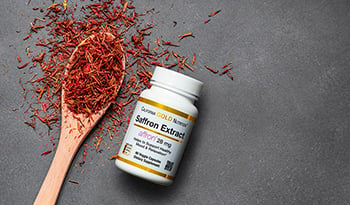7 Stres Yönetimi Takviyesi ve Yeni Bir Normalde Gezinme

Stres Nedir?
Stres, vücudunuzun her türlü talebe veya tehdide cevap verme şeklidir. Tehlikeyi hissettiğinizde - gerçek veya hayali olsun - vücudun savunması, dövüş ya da kaç reaksiyonu veya stres tepkisi olarak bilinen hızlı, otomatik bir süreçte yüksek vitese girer.
Stres tepkisi vücudun sizi koruma yoludur. Düzgün çalıştığında, stres tepkisi odaklanmış, enerjik ve uyanık kalmanıza yardımcı olur. Acil durumlarda, stres hayatınızı kurtarabilir ve kendinizi savunmanız için size ekstra güç verebilir.
Stres, zorluklarla başa çıkmak için yükselmenize de yardımcı olabilir. İş yerinde bir sunum sırasında sizi ayakta tutan, oyun kazanan serbest atışa çalışırken konsantrasyonunuzu keskinleştiren veya televizyon izlemeyi tercih ettiğinizde sizi bir sınav için çalışmaya iten şeydir. Ancak, belirli bir noktanın ötesinde, stres yardımcı olmayı bırakır ve sağlığınıza, ruh halinize, üretkenliğinize, ilişkilerinize ve yaşam kalitenize büyük zararlar vermeye başlar.
Stres Yönetimi
Stres yönetimi, stresin bedeniniz ve zihniniz üzerindeki etkilerini düzenlemenin bir yoludur. Stres yönetimi, problem çözme, görevlere öncelik verme ve zaman yönetimi gibi öğrenme becerileri olabilir. Ayrıca, örneğin duygusal farkındalığı geliştirmek, şükran uygulamak veya kişisel ilişkileri iyileştirmek gibi değişiklikler, sıkıntılar ve/veya çatışmalarla başa çıkma yeteneğinizi geliştirmeyi de içerebilir.
Takviyeler ayrıca stresi yönetmede yardımcı olabilir. Reçetesiz satılan birçok ilaç, sağlıklı stres hormonu seviyelerini korumak, yeterli uyku almak ve ruh halinizi desteklemek gibi strese karşı sağlıklı fizyolojik tepkileri destekleyebilir.
Doğal Rahatlama İçin 7 Olasılık
Araştırmacılar, bu zor zamanlarda ihtiyacı olan insanlar için faydaları olup olmadığını belirlemek için çok sayıda bitki, takviye ve vitamin üzerinde çalıştılar. İşte dikkate alınması gereken birkaçı.
1. Melatonin
Yeterli miktarda kaliteli uyku almak stresi azaltmak için önemlidir. Ortalama olarak, bu 7-8 saatlik kesintisiz göz kapama olmalıdır. Stres, uykuya dalmakta veya uykuya dalmakta zorluk çekmek de dahil olmak üzere uyku güçlüğü ile güçlü bir şekilde bağlantılıdır. Uykuyu yönetmek, ruh halini stabilize etmenin ve sağlıklı stres hormonu seviyelerini korumanın anahtarıdır.
Melatonin vücudunuzun sirkadiyen ritmini veya uyku-uyanıklık döngüsünü düzenleyen bir hormondur. Hormon seviyeleri akşamları uykuyu teşvik etmek için karanlık olduğunda artar ve sabahları uyanıklığı teşvik etmek için aydınlık olduğunda azalır.
Ekzojen melatonin veya vücut tarafından üretilmeyen melatonin, en çok talep edilen takviyelerden biridir. Melatonin, uyuduğunuz toplam saat sayısını destekleyebilir ve ayrıca jet lag veya vardiyalı çalışmadan kaynaklanan sağlıklı sirkadiyen ritim döngülerinin dengelenmesini de destekleyebilir (örneğin tüm gece vardiyasında çalışmak).
2. Glisin
Glisin vücudunuzun dokuların, hormonların ve enzimlerin büyümesi ve bakımı için gerekli olan proteinleri oluşturmak için kullandığı bir amino asittir. Vücut doğal olarak diğer amino asitlerden (daha büyük proteinler oluşturan bileşikler) glisin üretir, ancak protein açısından zengin gıdalarda da bulunur ve besin takviyesi olarak mevcuttur.
Glisin, vücudun hücrelerini genellikle stresin bir sonucu olan oksidatif hasara karşı koruyabilen bir antioksidan olan glutatyon yapmak için kullandığı amino asitlerden biridir. Glisin, DNA'mızı oluşturan pürinler adı verilen bileşenlerin oluşturulmasına yardımcı olur.
Glisin, kreatinadlı bir bileşiğin yapımında da anahtardır. Bu bileşik, diğer faydaların yanı sıra, sağlıklı beyin fonksiyonunu ve ruh halini destekleyebilir.
Çalışmalar ayrıca glisinin, beyni sakinleştirmeyi desteklediği gösterildiği için sağlıklı uykuyu destekleyerek vücudunuzun strese karşı direncini artırabileceğini öne sürüyor. Ayrıca çekirdek vücut sıcaklığınızı düşürme yeteneğine de sahip olabilir. Düşük vücut ısısı daha iyi uykuyu teşvik edebilir ve gece boyunca uykuda kalmanıza yardımcı olabilir.
3. Aziz John's Wort
Sarı kantaron (Hypericum perforatum) sarı çiçekleri olan çalı bitkisidir. Avrupa'da, Asya'nın bazı kısımlarında, Afrika'nın bazı kısımlarında ve batı Amerika Birleşik Devletleri'nde yabani olarak yetişir. Aziz John's wort yüzyıllardır kullanılmaktadır ve depresyon semptomlarının yönetimi de dahil olmak üzere çeşitli farklı sağlık koşullarını destekleyebilir. Sarı kantaronun kimyasal bileşimi iyi incelenmiştir ve mevcut araştırmalar bitkinin geleneksel kullanımını desteklemektedir. Bu botanik özellikleri antidepresan, antiviral ve antibakteriyel etkileri içerebilir.
Bu özellikler, hiperisin ve flavonoid bileşenler gibi kimyasal bileşiklere atfedilebilir. Hiperforin, St.John's wort'un antidepresan yeteneğinden sorumlu olabilecek ana bileşenlerinden biridir. Hiperforinin, 5-HTP, dopamin, norepinefrin ve GABAgibi nörotransmitterlerin alım inhibitörü olduğu gösterilmiştir. Bu, beyindeki kimyasal dengeyi destekler ve depresif semptomların nedenlerinden birini ele alır.
Çiçekler takviyeyi oluşturmak için kullanılır ve genellikle çay, tablet ve kapsül şeklinde gelir.
4. L-Teanin
L-theanine , çay yapraklarında en yaygın olarak bulunan bir amino asittir. Gevşeme ve sağlıklı kortizol (stres hormonu) seviyelerini destekleme yeteneği açısından incelenmiştir.
Bu bileşik ayrıca anksiyete semptomlarını yönetmeye ve sağlıklı hafıza fonksiyonunu ve dikkat süresini desteklemeye yardımcı olabilir. Bu etkiler, her bir bileşenin kendi başına daha az etkiye sahip olduğu bulunduğundan, çaydaki kafein ve L-theaninin sinerjik etkilerinden kaynaklanabilir. Bununla birlikte, çalışmalar L-theaninin tek başına stresi azaltmaya yardımcı olabileceğini düşündürmektedir.
5. B Vitaminleri
B vitaminleri , temel işlevleri yerine getiren sekiz suda çözünür vitaminden oluşur. Örneğin, bu vitaminler yediğiniz yiyecekleri kullanılabilir enerjiye dönüştürerek metabolizmada önemli bir rol oynayabilir. B vitaminleri, yiyecekleri parçalamak için gereken enzimler için kofaktörlerdir. Ayrıca sağlıklı ruh hallerini destekleyen DNA ve birçok nörotransmiter oluşturmada anahtardırlar.
B vitaminlerinin besin kaynakları arasında tahıllar, etler, baklagiller, yumurtalar, süt ürünleri ve yapraklı yeşillikler bulunur. Bu B vitaminlerini almanın kolay ve kullanışlı bir yolu takviyelerdir. B vitaminleri, enerji üretimini, sağlıklı ruh hallerini ve sağlıklı kortizol seviyelerini desteklemekle ilişkilendirilmiştir.
6. Fosfatidilserin
Fosfatidilserin (PS) vücutta doğal olarak bulunur ve özellikle beyinde hücresel işlevi destekleyebilir. PS, fosfolipid adı verilen yağlı bir maddedir. Beyninizdeki hücreleri kaplar ve korur ve aralarında mesajlar taşır. PS hafızanızı desteklemede önemli bir rol oynar. Ayrıca vücudun strese tepkisini hafifletebilir.
7. Gama-Aminobütirik Asit (GABA)
Gama-Aminobütirik asit (GABA) beyninizde bir nörotransmiter olarak çalışan doğal olarak oluşan bir amino asittir. Nörotransmiterler kimyasal haberciler olarak işlev görür. GABA, belirli beyin sinyallerini bloke ettiği veya inhibe ettiği ve sinir sisteminizdeki aktiviteyi azalttığı için inhibitör bir nörotransmiter olarak kabul edilir
Gama-Aminobütirik asit (GABA) genellikle ek olarak alınır. Anksiyete semptomlarını azaltmaya ve ruh halini desteklemeye yardımcı olabilir. GABA ayrıca sağlıklı bir bağışıklık sistemini destekleyebilir.
Hepimiz bu salgın sırasında sağlıklı kalmanın yollarını aramaya devam ederken, neyse ki, ihtiyacımız olan desteği ve rahatlamayı sağlamaya yardımcı olabilecek birçok doğal seçenek var.
Referanslar:
- Costello, R.B., Lentino, C.V., Boyd, C.C. ve ark. (2014). Melatoninin sağlıklı uykuyu teşvik etmede etkinliği: literatürün hızlı bir kanıt değerlendirmesi. Beslenme Dergisi, 13, 106; 11/7/2014 tarihinde yayınlandı; Erişim tarihi: 6/29/2020
- Razak, M.A., Begum, P.S., Viswanath, B., et al. (2017). Esansiyel Olmayan Amino Asit, Glisinin Çok Çeşitli Faydalı Etkisi: Bir İnceleme. Oksidatif tıp ve hücresel uzun ömür, 2017, 1716701.
- Davidson, J.T., Connor, K.M. Kediotu. İçinde: Akıl İçin Otlar: Depresyon, Stres, Hafıza Kaybı ve Uykusuzluk. New York: Guilford Yayınları, 2000:214-233.
- Hidese, S., Ogawa, S., Ota, M., ve diğerleri (2019). Sağlıklı Yetişkinlerde L-Theanine Uygulamasının Strese Bağlı Semptomlar ve Bilişsel İşlevler Üzerindeki Etkileri: Randomize Kontrollü Bir Çalışma. Besinler, 11 (10): 2362.
- Kennedy D.O. (2016). B Vitaminleri ve Beyin: Mekanizmalar, Doz ve Etkinlik - Bir İnceleme. Besinler, 8 (2): 68.
- Kim, H.Y., Huang, B.X., & Spector, A.A, et al. (2014). Beyindeki fosfatidilserin: metabolizma ve fonksiyon. Lipid araştırmalarında ilerleme, 56, 1—18.
- Boonstra, E., de Kleijn, R., Colzato, L.S., ve diğerleri (2015). Gıda takviyesi olarak nörotransmiterler: GABA'nın beyin ve davranış üzerindeki etkileri. Psikolojide sınırlar, 6, 1520.
FERAGAT:SAĞLIK MERKEZİ tanı koymayı hedeflememektedir...
















































































 İçindekiler
İçindekiler
















